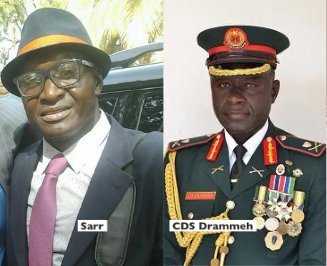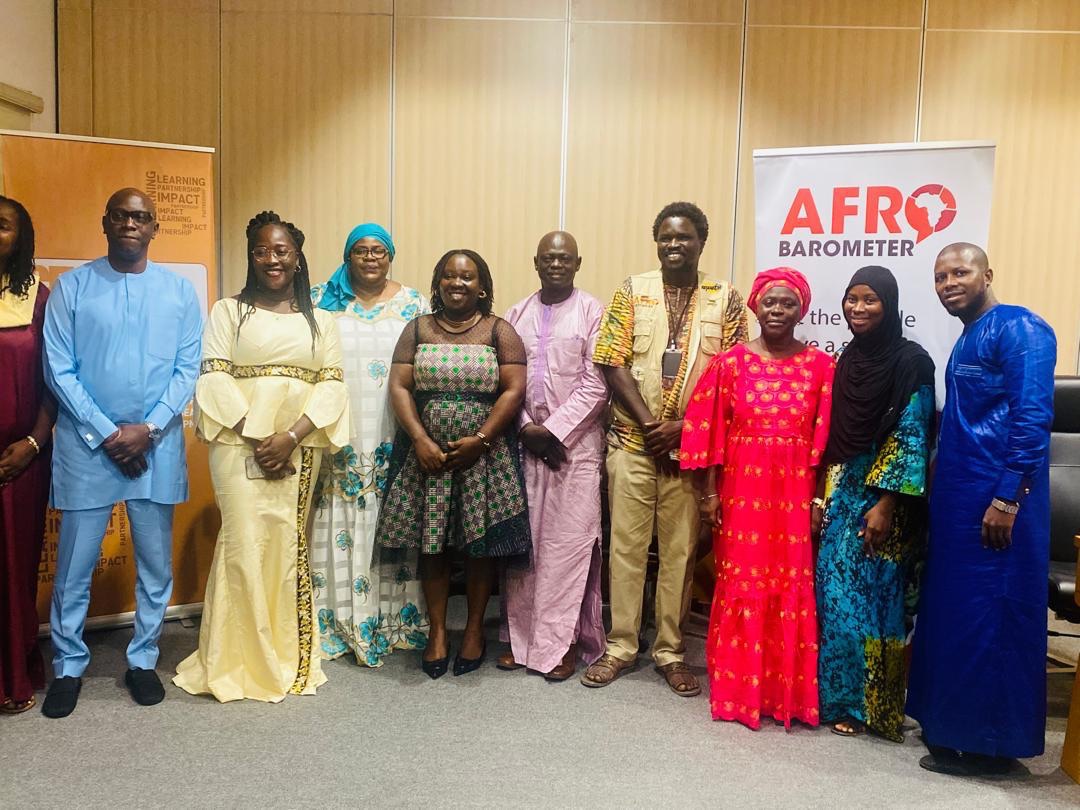By Demba Nyima, Atlanta, GA, USA
The fundamental essence of a thriving democracy, deeply ingrained in the art of civil discourse, represents the cornerstone upon which progressive liberal society is built. This underpinning principle not only fosters a rich amalgamation of ideas, experiences, and backgrounds but also engenders an environment that reveres and respects the kaleidoscope of diverse perspectives. Through the diligent practices of active listening, critical thinking, and constructive dialogue, our citizenry is duly empowered to collaboratively address multifaceted challenges, envision innovative possibilities, and collectively shape the trajectory of our shared destiny.
Let us, for a moment, journey back to the hallowed annals of ancient Athens, the very cradle of democracy itself, where we unearth in Plato’s magnum opus, “Phaedrus,” an allegory that strikes a chord with the discourse at hand. Picture, if you will, a celestial chariot gracefully soaring across the firmament, steered by none other than the venerable Socrates, the paragon of Western philosophy. This allegorical tableau features two majestic, winged horses—a stark duality embodied by one white and one black. Within this celestial chariot, the white horse symbolizes our loftiest aspirations, driven by a fervent pursuit of glory and elevation, while the dark horse is inexorably tethered to the material realm, epitomizing our more primal and base instincts. The delicate equilibrium, much like the finely tuned mechanism of a democratic society, hinges precariously on the harmonious interplay between these divergent forces.
Socrates, the philosophical luminary who graced the bustling streets of Athens, was not merely an introspective thinker but a catalytic agent for communal introspection. He transcended the boundaries of the ivory tower and immersed himself in the vibrant agora, symposia, and courtrooms, inviting fellow citizens into profound dialogues. Through the relentless art of questioning and discourse, Socrates held a mirror to society, gently nudging it toward a collective quest for truth. Nevertheless, Socrates, during his sojourn on the intellectual battlefield, bore witness to the weaponization of language.
The sophists, those skillful wielders of rhetoric, champions of wordsmithery over authenticity, stood in stark contrast to Socrates’ genuine pursuit of inquiry. A pivotal confrontation between Socrates and Gorgias, a prominent sophist of his era, underscored the perennial tension between the authentic pursuit of knowledge and the manipulative art of discourse. In a curious parallel to our modern era, these sophists were the forebears of today’s disseminators of misinformation and demagoguery, placing individual gain above the collective wisdom that underpins a thriving democracy.
As we contemplate the essence of civil discourse in our contemporary landscape, it becomes evident that The Gambia offers a compelling case study that would even make Socrates pause in reflection. However, as I meticulously monitor the ongoing debate, or dare I say, the rhetorical skirmish, between the Gambia Armed Forces (GAF) and its erstwhile commander, Sam Sarr, an irresistible compulsion compels me to contribute my perspective to this multifaceted discourse. It is a truism often acknowledged that in the crucible of robust debates, a greater truth invariably emerges. Upon a thorough examination of the arguments and counterarguments exchanged between these two formidable factions, the glaring conclusion, akin to the radiant brilliance of the noonday sun, emerges that we find ourselves ensnared in a veritable tempest within a porcelain teacup. While the ultimate verdict may still linger on the precipice of deliberation, I am compelled to dispense my judgment and draw this contentious chapter to a resolute close. This verdict, unequivocally pronounced from the very outset, proclaims that Sam Sarr is the enigmatic perpetrator, adroitly cloaked in the guise of a victim, adroitly capitalizing on the susceptibilities of the Gambian populace. However, let it be unequivocally stated that when it comes to matters of national security, the specter of partisan politics must dutifully yield its preeminence. By no means do I advocate for the silencing of dissenting voices or the suppression of critical discourse regarding the GAF; rather, my solemn entreaty is for public figures, especially former guardians of our territorial sovereignty who have solemnly sworn to protect and defend The Gambia, to exercise an admirable degree of circumspection and sagacity when navigating the treacherous waters of national security dialogue.
Alas, I confess that I found myself profoundly disconcerted, disillusioned, and left utterly aghast following a perusal of Sam Sarr’s submissions. Our dear Sam exhibits an almost insatiable penchant for pontificating upon topics that would leave even our most erudite Oxford scholars scratching their heads in bemusement. From geopolitics to quantum physics, he feigns an expertise as diverse and unpredictable as a British weather forecast; one can scarcely anticipate the next topic to grace his rhetorical stage. When he is not serenading us with the melodious prose of his own rather somnolent literary oeuvre, he unashamedly regales us with tales of his “indisputable expertise.” Nonetheless, Sam Sarr employs a rather artful sin of omission, adroitly sidestepping certain salient facts and aspects of his narrative when addressing his audience. While he is unflinchingly candid in his critique of the Gambia Armed Forces (GAF), he conspicuously avoids a critical self-assessment of his own tenure as Commander of the GAF. This modus operandi casts a pall of doubt upon the very foundations of his credibility, thereby necessitating a rigorous scrutiny of his perceived expertise. In an era where individuals wielding influence, such as Mr. Sarr, must fervently strive to maintain their credibility and operate with unwavering transparency and candor to engender trust among their audience, his conspicuous omission leaves much to be desired. Conversely, the GAF, through its finely tuned communication machinery under the capable stewardship of Lieutenant Colonel Lamin Sanyang, has responded to this tempest with the composure and precision reminiscent of a quintessential British butler—calm, collected, and endowed with a refreshing degree of understatement. While Sam’s loquaciousness may compel us to reach for our dictionaries in search of elucidation, the GAF’s press releases possess the innate charm of a freshly brewed cup of tea, managing to hit the proverbial bullseye without the unnecessary fanfare and pomposity that often accompanies such affairs. Sam, it seems, clings tenaciously to the ghosts of grievances past, much like a quintessential Briton clutching onto his trusty umbrella. It’s almost as if we’ve been transported into an episode of “Downton Abbey,” with the enigmatic Lobster Sarr cast in the role of the misunderstood hero, gallantly grasping at the remnants of long-forgotten battles in the hopes that they might cast him in the light of a victorious figure. However, as the adage goes, when one resides in a glass house, it becomes imperative to refrain from hurling stones. The timely rejoinder from the GAF has effectively unveiled Sam as a library bereft of books, akin to a Big Ben stripped of its melodious bongs. Their well-orchestrated response has lifted the curtain on Sam’s ceaseless verbosity, revealing a man who has been tooting his own horn to the gallery for far too long.
Nonetheless, the question that continues to occupy the recesses of my mind, echoing with a persistent refrain of “why, why, why…” Why do Gambians hold in such high regard lightweight intellectuals of the Sam Sarr variety, individuals who have astutely weaponized their own inadequacies to line their pockets at the expense of the Gambian populace? Sam, it seems, is not merely an empty vessel; he is fundamentally dishonest, egregiously self-serving, and insufferably pompous. The intellectual puzzle that perplexes me revolves around the basis upon which Sam purports to possess authoritative insights into the intricate domain of national security. Beyond the somewhat antiquated Primary Teachers’ Certificate (PTC) he obtained roughly four decades ago from Gambia College, one discerns a conspicuous dearth of substantive academic credentials that would credibly support his claims. While it is an undeniable fact that he once held the exalted position of Commanding officer of the Gambia Armed Forces, the bewildering enigma of his meteoric ascent to the rank of Lieutenant Colonel, especially in the glaring absence of any formal university education, remains a conundrum worthy of deep contemplation. It is imperative to underscore the incontrovertible reality that a Primary Teachers’ Certificate (PTC) in no way even approximates the educational depth and breadth of an associate degree, let alone bachelor’s degree. Consequently, it ventures into the realm of preposterousness to entertain the notion that Sam Sarr possesses even a modicum of qualifications to instruct anyone in the domain of military science. Perhaps it would be more judicious for Mr. Sarr to embark earnestly on a journey back to the hallowed halls of academia, earnestly endeavoring to consummate the associate degree he tentatively pursued during his self-imposed exile in the United States.
Notably, the very same Sam Sarr who executed a complete ideological about-face to fervently support Jammeh subsequently executed a corresponding volte-face to vehemently oppose the erstwhile president after his electoral defeat. This man exhibits a seemingly inexhaustible proclivity to exploit prevailing political currents for his own pecuniary advantage. It behooves President Barrow to exercise discernment and refrain from entertaining individuals of Sam Sarr’s ilk, who may be vigorously seeking to insinuate themselves into positions of influence through questionable means. The Gambia appears to occupy a unique niche among nations where an individual devoid of any university-level education could ascend to the esteemed rank of Lieutenant Colonel within the armed forces.
In point of fact, Sam Sarr’s elevation to such a position conspicuously represents a pronounced anomaly in the annals of military history. Furthermore, it is imperative to underscore that the lion’s share of Sam Sarr’s literary contributions, which he has audaciously proffered as objective treatises of scholarship, are not only patently intellectually fallacious but also morally reprehensible, given their conspicuous lack of grounding in empirical substantiation. I would humbly proffer the suggestion that one should peruse the extensive compendium of his works, spanning from the inception of his self-declared journey as the preeminent custodian of Gambian defense affairs. It is nothing short of astonishing that Sam Sarr seldom deigns to cite any empirical data to buttress the sweeping proclamations that he is so fond of disseminating. Rather, he appears to luxuriate in the domain of verbosity, conjecture, and unabashedly tendentious narratives. It is a lamentable reality that Sam Sarr does not stand alone in this particular regard. A substantial cohort of the so-called talking heads, who frequently grace our radio and television platforms, seem to share in this propensity for intellectual shallowness, unabashedly anointing themselves as authorities and savants in virtually every conceivable field.
Regrettably, such a state of affairs arises as a consequence of ineffectual gatekeepers within our society. While it is undeniable that a university education ought not to be the exclusive determinant of one’s intrinsic worth or professional competence, it remains an incontrovertibly essential credential for individuals presuming to fulfill the noble role of societal watchdogs. Indeed, one cannot efficaciously assume the mantle of quality control manager in the absence of a fundamental comprehension of the subject matter that they purport to oversee. It is nothing short of astonishing that the predominant composition of our media institutions is replete with individuals whose educational attainments have barely surpassed the threshold of secondary schooling. This disconcerting state of affairs extends to encompass the very editors of newspapers and managers of broadcasting houses that afford luminaries like Sam Sarr a platform tantamount to that of exalted luminaries. It is an exercise in credulity to conceive of these conspicuously unqualified individuals being accorded the privilege of interviews, particularly on subjects as intricate as modern military affairs. The resounding truth that emerges is that Sam Sarr constitutes a manifestly inappropriate candidate to spearhead any facet of defense reform.
Should Sam Sarr genuinely aspire to bolster the reform endeavors of the Gambia Armed Forces, it is incumbent upon him to eschew the practice of crafting heavily opinionated diatribes for publication in newspapers, replete with acerbic criticism directed at the present high command of the GAF. Instead, he should channel his energies into crafting a policy paper that is devoid of mudslinging and derogatory rhetoric. It is manifestly apparent that Sam Sarr frequently seeks refuge behind his pulpit to settle personal scores with specific members of the current high command of the GAF. However, what appears to elude his comprehension is the profound realization that many of his criticisms against the GAF carry far-reaching ramifications. Being a former commander himself, when he ventures onto the radio waves or graces the pages of local newspapers to assert boldly that the GAF is a nonsensical army, primarily composed of undertrained, ill-equipped soldiers who are unfit for combat in any war, it leaves one wondering whether he is merely channeling the adversary or if such comments are genuinely designed to inspire reform. Indeed, any individual with a background in national security would concur that the vast majority of information disseminated by Sam Sarr on social media poses substantial risks to national security. His glaring lack of security consciousness is deeply concerning. It is incumbent upon us to ponder the nature of Sam’s military occupational specialty during his time in the army. It is highly likely that he was not a military intelligence officer, as evidenced by his propensity to expose secrets. He has loose lips and an inability to safeguard even his own secrets, let alone national security matters.
While I applaud the Gambia Armed Forces for utilizing their well-organized communication wing under the competent leadership of Lieutenant Colonel Lamin Sanyang to debunk Sam’s misleading statements, it is worth criticizing the GAF for failing to utilize its military intelligence apparatus to investigate Sam. This is a man who once held top-secret information, and he is now behaving in a manner that is seemingly out of character by making unfounded claims against the very organization he once served. It is imperative for the GAF command to grasp the gravity of the insider threat. Yes, Lobster Sarr may no longer be a member of the GAF, but his prior association with the organization provides him with a unique vantage point, from which he could potentially jeopardize the lives of current serving members of the GAF. Sam is a disgruntled individual who appears willing to do anything to safeguard his pride, enhance his prestige, and accrue monetary gains.





